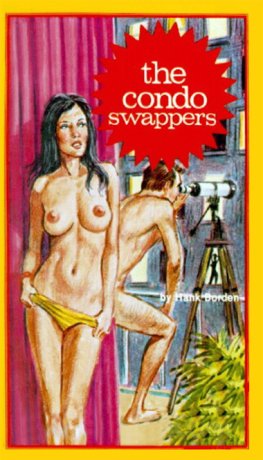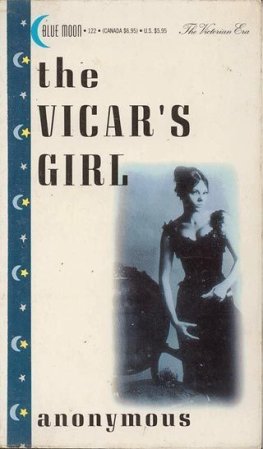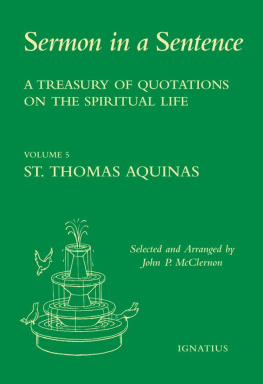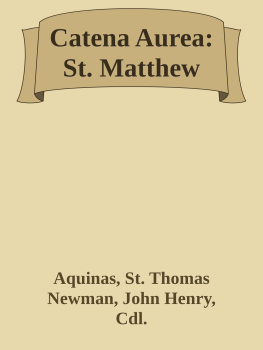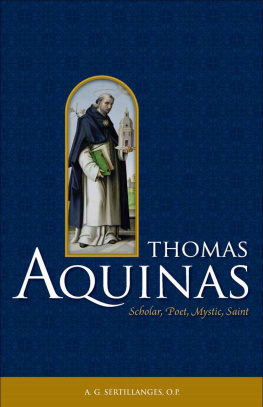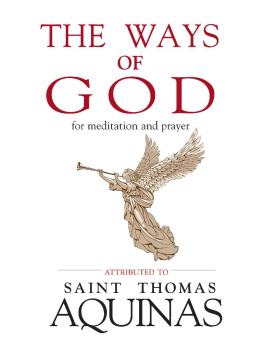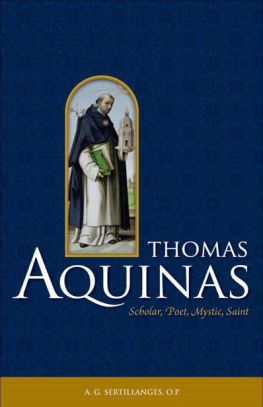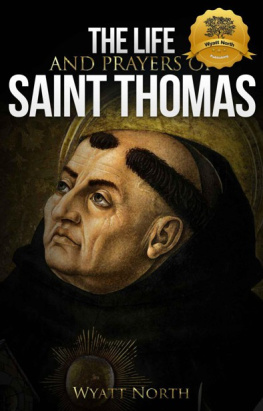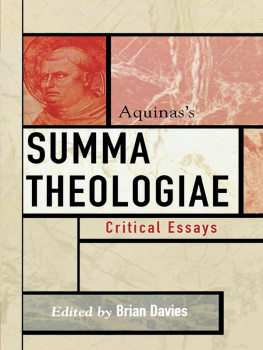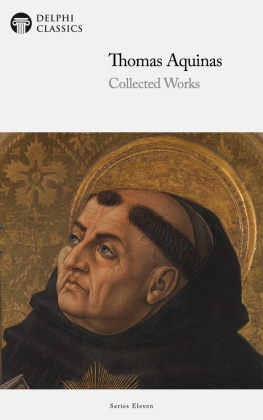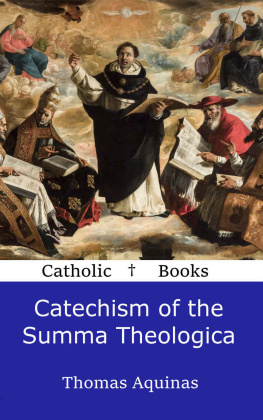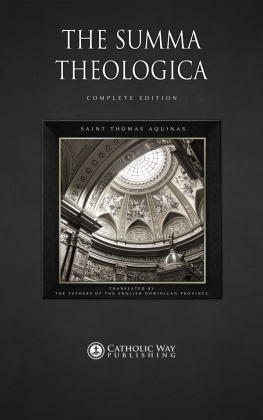Anonymous - St. Thomas Aquinas: Universal Doctor of the Church (1225-1274)
Here you can read online Anonymous - St. Thomas Aquinas: Universal Doctor of the Church (1225-1274) full text of the book (entire story) in english for free. Download pdf and epub, get meaning, cover and reviews about this ebook. year: 2016, publisher: TAN Books, genre: Detective and thriller. Description of the work, (preface) as well as reviews are available. Best literature library LitArk.com created for fans of good reading and offers a wide selection of genres:
Romance novel
Science fiction
Adventure
Detective
Science
History
Home and family
Prose
Art
Politics
Computer
Non-fiction
Religion
Business
Children
Humor
Choose a favorite category and find really read worthwhile books. Enjoy immersion in the world of imagination, feel the emotions of the characters or learn something new for yourself, make an fascinating discovery.

- Book:St. Thomas Aquinas: Universal Doctor of the Church (1225-1274)
- Author:
- Publisher:TAN Books
- Genre:
- Year:2016
- Rating:3 / 5
- Favourites:Add to favourites
- Your mark:
- 60
- 1
- 2
- 3
- 4
- 5
St. Thomas Aquinas: Universal Doctor of the Church (1225-1274): summary, description and annotation
We offer to read an annotation, description, summary or preface (depends on what the author of the book "St. Thomas Aquinas: Universal Doctor of the Church (1225-1274)" wrote himself). If you haven't found the necessary information about the book — write in the comments, we will try to find it.
St. Thomas Aquinas: Universal Doctor of the Church (1225-1274) — read online for free the complete book (whole text) full work
Below is the text of the book, divided by pages. System saving the place of the last page read, allows you to conveniently read the book "St. Thomas Aquinas: Universal Doctor of the Church (1225-1274)" online for free, without having to search again every time where you left off. Put a bookmark, and you can go to the page where you finished reading at any time.
Font size:
Interval:
Bookmark:
ST. THOMAS AQUINAS
UNIVERSAL DOCTOR OF THE CHURCH
With permission of the Ordinary of the Diocese of Kerry, Ireland.
Previously published circa 1932 or earlier by Dominican Publications, St. Saviour's, Dublin, as part of the "Dominican Saints of the Rosary" series.
The type in this book is the property of TAN Books and Publishers, Inc., and may not be reproduced, in whole or in part, without permission in writing from the Publisher. (This restriction applies to this type, not to quotations from the book.)
Library of Congress Catalog Card No.: 94-61811
ISBN: 0-89555-513-1
TAN Books
Charlotte, North Carolina
www.TANBooks.com
1995
"Just as it was said to the Egyptians of old in time of famine: 'Go to Joseph,' so that they should receive a supply of grain from him to nourish their bodies, so we now say to all such as are desirous of the truth: 'Go to Thomas, and ask him to give from his ample store the food of substantial doctrine wherewith to nourish your souls unto eternal life.' "
Pope Pius XI
Encyclical Studiorum Ducem
June 29, 1923

Butler, Lives of the Saints
St. Thomas Aquinas
c. 1225-1274
The Angelic Doctor
Universal Doctor of the Church
"And I called upon God, and the spirit of wisdom came upon me: and I preferred her before kingdoms and thrones, and esteemed riches nothing in comparison of her. Neither did I compare unto her any precious stone: for all gold in comparison of her, is as a little sand, and silver in respect to her shall be counted as clay."
Wisdom 7:7-9
PUBLISHER'S NOTE
D ESPITE the fact that St. Thomas Aquinas' principal work was writing philosophy and theology, he remains one of the Church's dearest and most popular Saints. What is the cause of this? A reading of the present booklet will give the clue. But if the reader will forebear a little surmising on this question, I would have to say his popularity rests on his humility, purity, approachableness and heroic effort. Perhaps all these qualities can best be summed up by saying that St. Thomas fulfilled perfectly the role God had chosen for him in life. And people admire and emulate a Saint for this very fact, even though the nature of his work, as in the case of St. Thomas, is something only relatively few will ever have direct contact with. Yet St. Thomas Aquinas touches the lives of all men, eventodayespecially Catholicsbecause it is his philosophy and theology that are used to teach the Church. It is his thought ultimately that forms and instructs our priestsor should, if it does notand consequently, we are all the beneficiaries, indirectly, of his towering genius and the incredible achievement of his life. For he synthesized all Catholic philosophy, theology, Scripture and Tradition into the mightiest compendium of human thought ever penned, the Summa Theologica, yet he died at just 49 years of age. But the calibre and extent of his writing reflect the work of one who had lived much longer.
As of this time (1995), the Popes have declared only 32 Saints "Doctor of the Church." Among them, St. Thomas Aquinas has the first place. Only St. Augustine, the greatest of the Fathers of the Church, can even be compared to him. St. Thomas has earned the titles, "The Angel of the Schools," "The Angelic Doctor," "The Common Doctor" and "The Universal Doctor."
Without having read him, a person cannot possibly realize the magnitude of his mind. Yet suffice it to say that our greatest doctors of philosophy and theologytoday, as in all timesstand in utter awe of him. Reading him, I have myself often thought, "How could a mere human being have written this?" Fr. Norris Clarke, S.J. of Fordham University used to say, "After you have read St. Thomas, you fear no man." A person can spend a lifetime reading St. Thomas (and some do) yet not exhaust the riches of his thought. Besides being possessed of a perfect memory, he had an instinct for the truth, a sure judgment. On difficult questions, he was able to see through problems to the right answer. His judgment of the truth was unerring.
Scholastic philosophy, of which the writings of St. Thomas Aquinas are the best embodiment, forms the basis of Catholic theology. With that baseand one might equally say, "with St. Thomas"that theology is on a firm foundation. That is why the devil fears Scholastic philosophy, for he knows he cannot confound the priest who is well grounded in it. It is for this reason that Pope Leo XIII (1878-1903) wrote his beautiful encyclical Aeterni Patris (The Study of Scholastic Philosophy1879) in which he urged Catholic seminaries, colleges and universities to return to this ancient philosophy, but especially as expressed in the writings of St. Thomas Aquinas.
Of St. Thomas, Pope Leo XIII says many beautiful and memorable things, including the following: "Among the scholastic doctors, the chief and master of all, towers St. Thomas Aquinas, who, as Cajetan observes, because 'he most venerated the ancient doctors of the Church, in a certain way seems to have inherited the intellect of all.' " "Moreover, the Angelic Doctor pushed his philosophic conclusions into the reasons and principles of things which are most comprehensive and contain in their bosom, so to say, the seeds of almost infinite truths, to be unfolded in good time by later masters and with a goodly yield." "...he victoriously com-batted the errors of former times, and supplied invincible arms to put those to rest which might in after-times spring up." "...reason, borne on the wings of Thomas to its human height, can scarcely rise higher, while faith could scarcely expect more or stronger aids from reason than those which she has already obtained through Thomas." "...there were not lacking among the leaders of the heretical sects some who openly declared that, if the teaching of St. Thomas Aquinas were only taken away, they could easily battle with all Catholic teachers, gain the victory and abolish the Church. A vain hope indeed, but no vain testimony."
Despite the elevation and penetration of his thought, the person of St. Thomas Aquinas remains oh so approachable, so lovable and so admirable, such that even those who might never have occasion to read his exalted writings nonetheless can revere him for his great sanctity, invoke him as the "Patron Saint of Catholic Schools," and praise God for having raised the thinking of a mere mortal to levels only the Angels can otherwise attain.
Thomas A. Nelson
Publisher
March 16, 1995
CONTENTS
INTRODUCTION
T HE thirteenth century was a time of extraordinary intellectual activity, which was not without its dangers. In the enthusiastic pursuit of learning, students flocked by thousands to the great universities, which, unhappily, were as often schools of infidelity as of faith. The philosophers of the age owned but one master, and he was a heathen. "Aristotle," says Lacordaire, "was taken to be the representative of wisdom, and unfortunately, Aristotle and the Gospel did not always agree." And many, entering on the unexplored sea of thought without a guide, made hopeless shipwreck of their religion. The great professors who were the oracles of the day were not always proof against the seductions of vanity and sometimes tried to make a name for themselves by proposing bold theories in matters where original speculation is seldom friendly to the Faith.
It was amidst the confusion of these new opinions that St. Thomas Aquinas was given to the world to mark out the limits of Christian philosophy and to form the separate materials of dogmatic, moral and speculative theology into one grand and finished structure, while at the same time he enriched the Church's liturgy with some of the most beautiful of its devotional formularies and displayed in his life and character all the virtues and winning graces of a Saint.
Next pageFont size:
Interval:
Bookmark:
Similar books «St. Thomas Aquinas: Universal Doctor of the Church (1225-1274)»
Look at similar books to St. Thomas Aquinas: Universal Doctor of the Church (1225-1274). We have selected literature similar in name and meaning in the hope of providing readers with more options to find new, interesting, not yet read works.
Discussion, reviews of the book St. Thomas Aquinas: Universal Doctor of the Church (1225-1274) and just readers' own opinions. Leave your comments, write what you think about the work, its meaning or the main characters. Specify what exactly you liked and what you didn't like, and why you think so.




